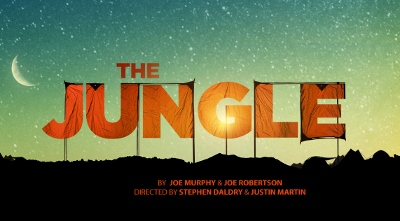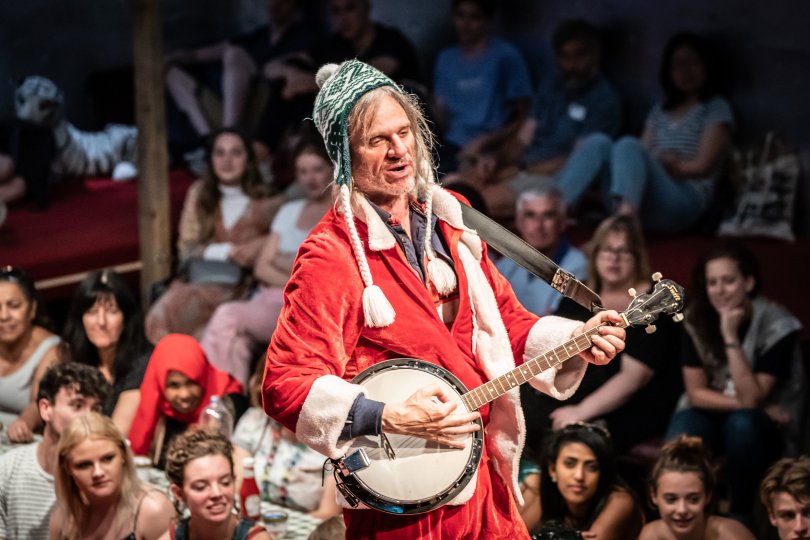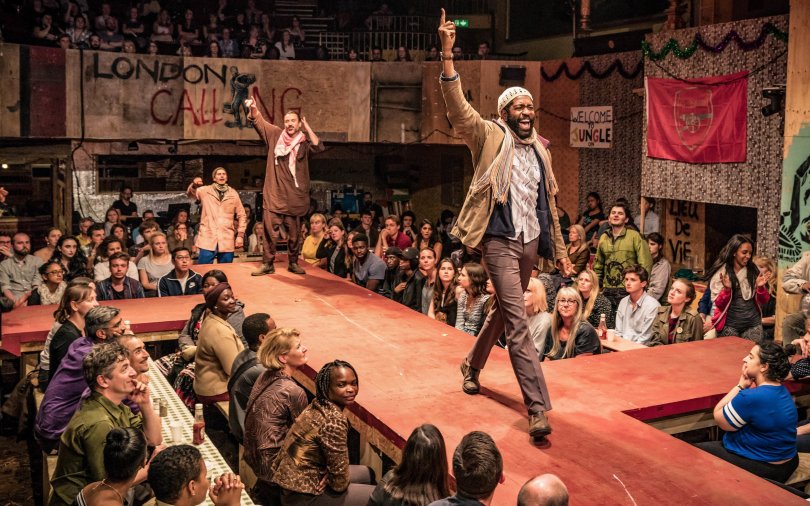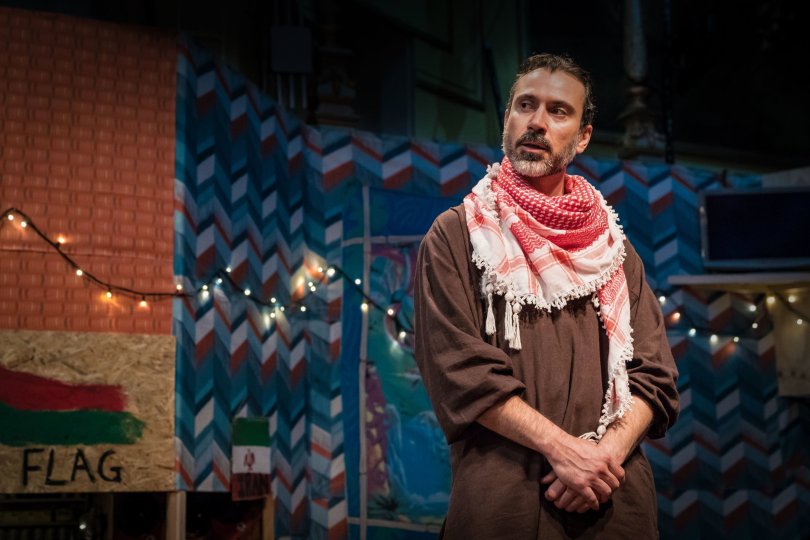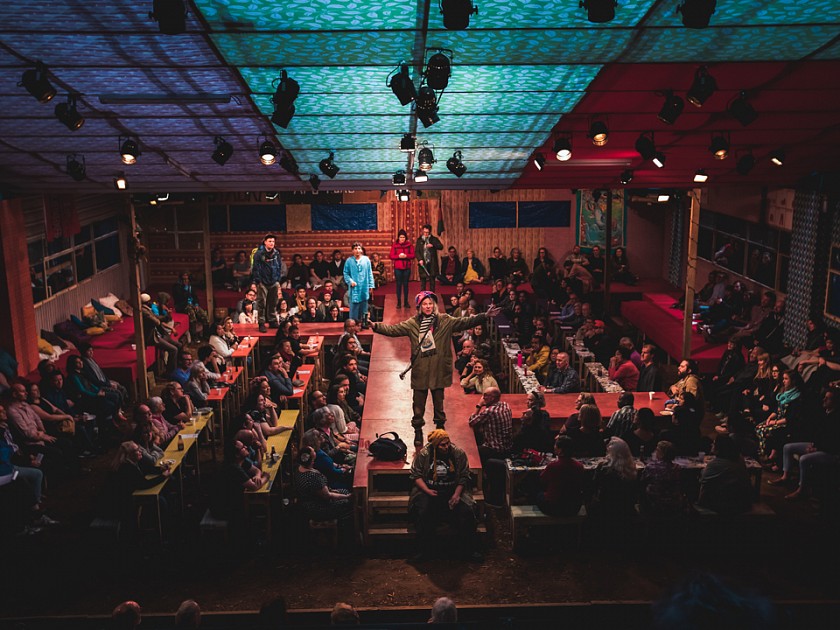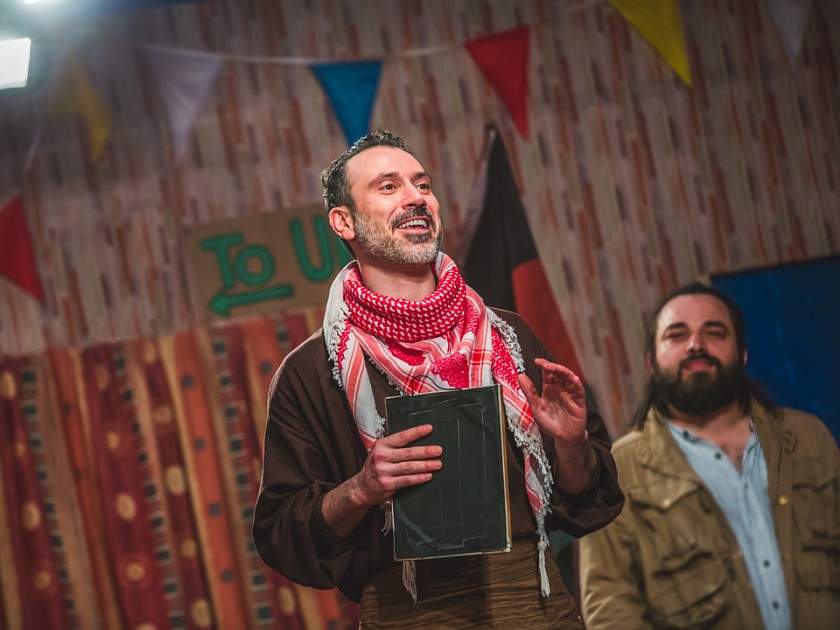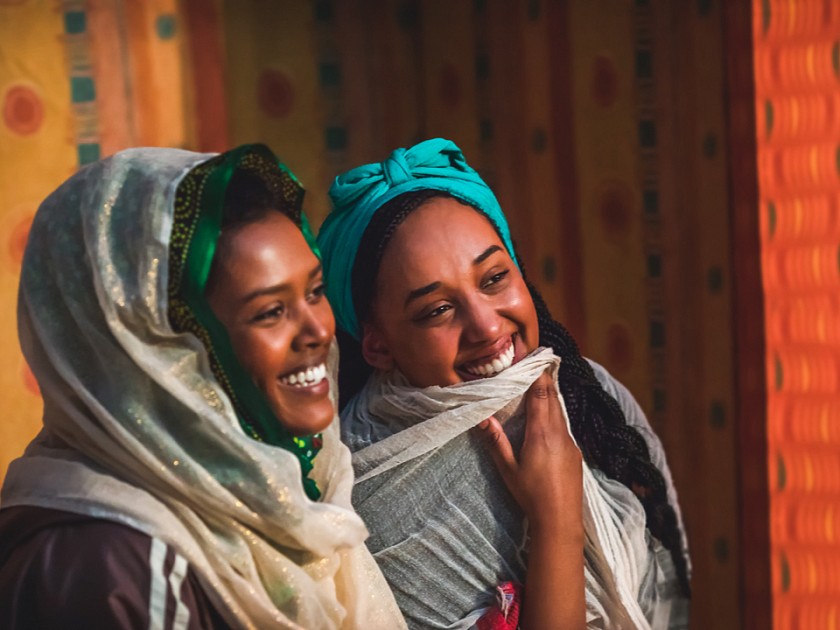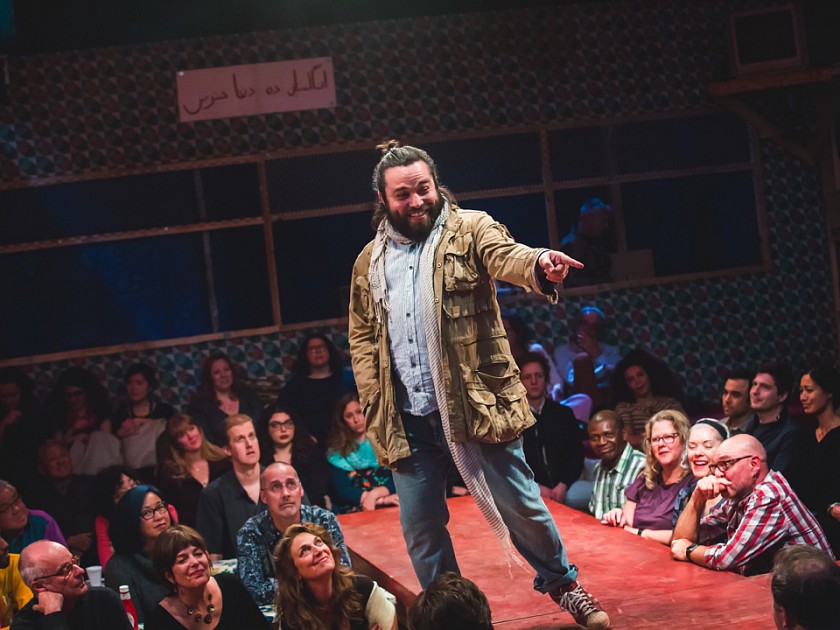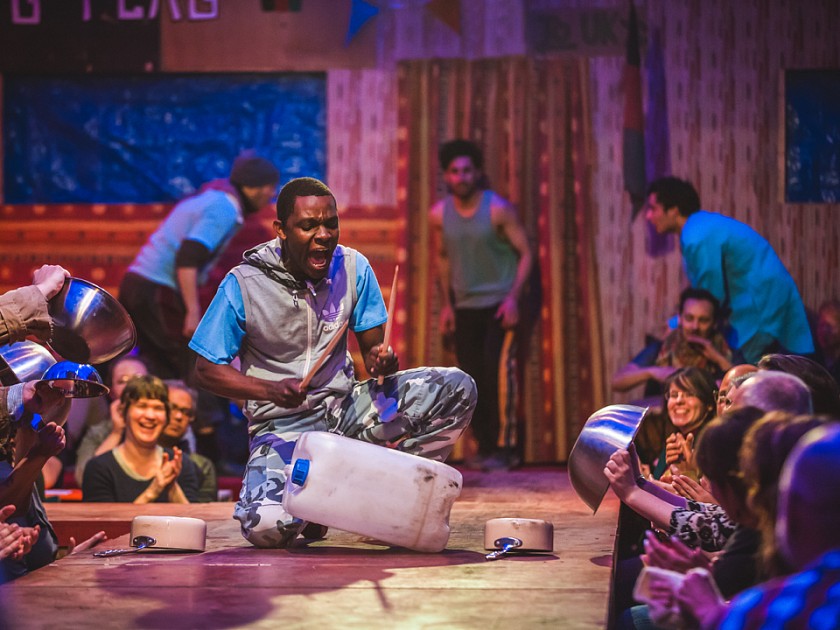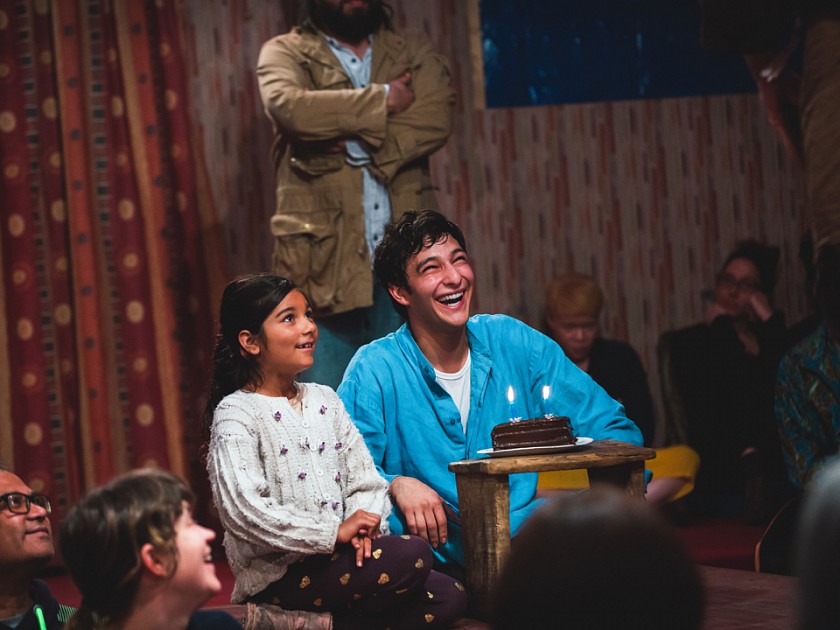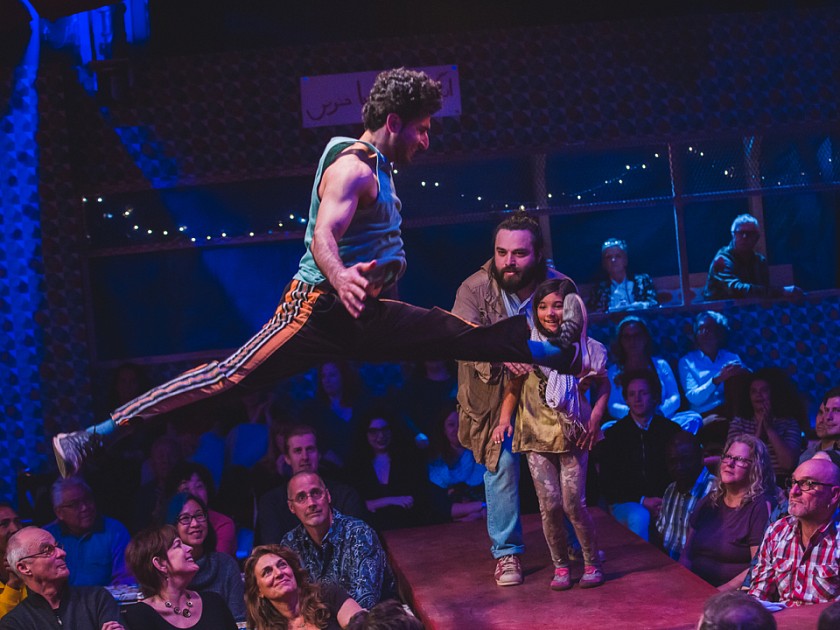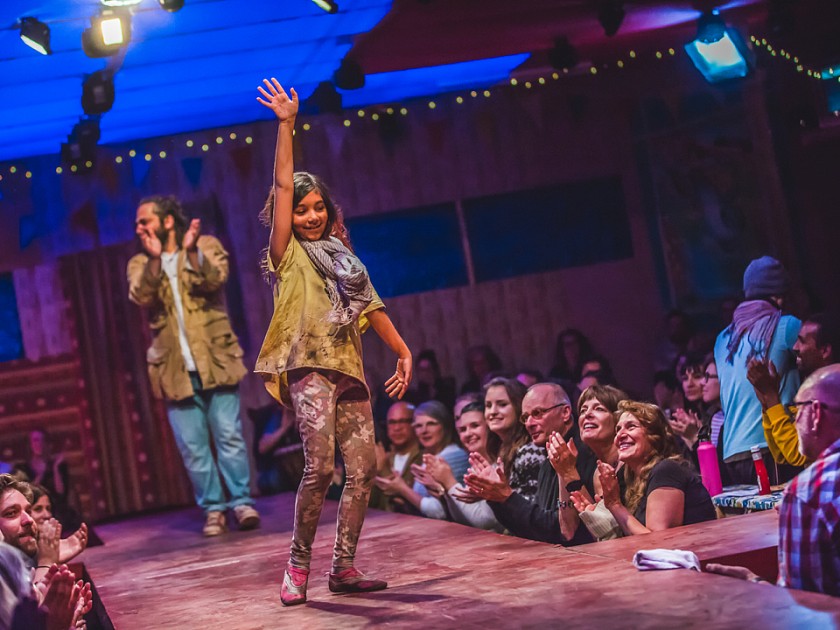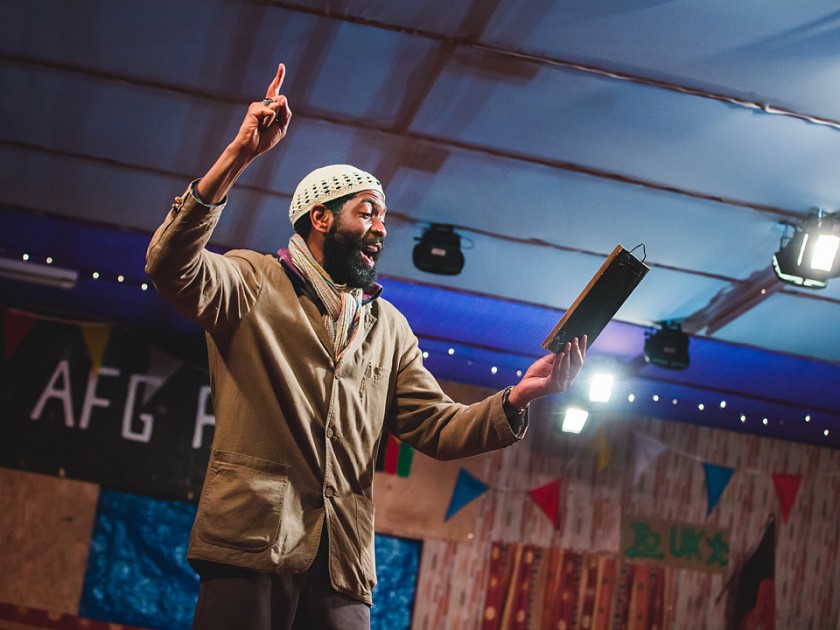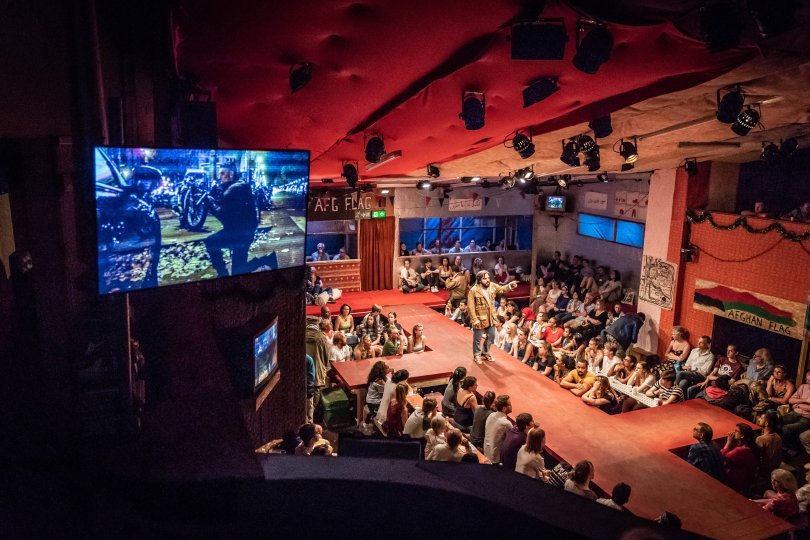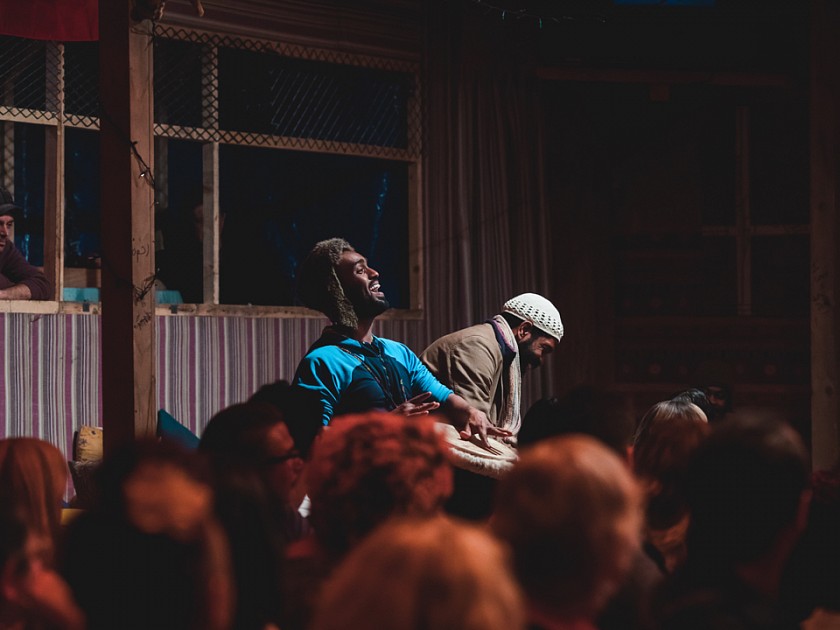IT’S A JUNGLE IN HERE
From 2015 to 2016, The Jungle was a makeshift camp in a landfill site in Calais, France, the port city where the Channel Tunnel to the UK begins. Inhabited by refugees from nations normally unfriendly to one another — Syria, Sudan, Afghanistan, Eritrea, Iraq, Iran, and others — they put their differences aside to create a shanty town which included a mosque, a church, and a communal eatery. The Afghan Café is the setting for this immersive experience being presented at the transformed Curran Theater until May 19. The American premiere of this London-based phenomenon opened at NYC’s St. Ann’s Warehouse last December.
When entering, the security bag inspection was a reminder of the Sri Lanka bombings we’d heard of in today’s morning news. Moving into the playing area, passing through a plywood kitchen structure complete with hotplate and food, the sense that this was not going to be a traditional theater experience was vivid. The earth-shaking roar of highway trucks and planes taking off and landing (sound by Paul Arditti) mingled cacophonously with a track of varied world music. Adding to the chaotic atmosphere under a flat tent-like blue plastic tarp, actors in Catherine Kodicek’s colorful array of eastern dress moved around on raised catwalk-like platforms, serving chai tea in Styrofoam cups, and bustling among and in the faces of viewers seated at wooden tables covered in enamel cloths.
Upon entering, an usher dressed in black told us to stand a couple of feet over and someone would take us to our seats in a “box” which seemed hidden up some stairs. When no one seated us, it was difficult to discern whether that was part of the show or not. The “box” consisted of a wooden bench with thin cushions (but no chai). From the view just above the tables, one can really take in Miriam Buether’s incredible ramshackle restaurant, a jerry-built assemblage of found objects, canvases, cardboard, and textiles. (Folks in the mezzanine get traditional tiered rows of seats.) What followed was two and a half hours of heightened reality including ranting diatribes, choreographed violent outbursts, and a faux tear gas assault.
Aside from a few welcome musical respites, these elements made a demanding time for the playgoer — which is no doubt the intention in a Brechtian way. At one point, Sala the restaurant owner put some food in front of an audience member who did not appear to want anything to do with it. The actor teased the lady asking why she was not eating. He persisted, asking for some money; she indicated she had none. Her companion pulled out a bill which — to the visual relief of the lady — ended the bit. Another taxing aspect was flashlights, which actors used as spotlights during dialogue — when one mature lady shielded her eyes, all you could see was a very large diamond ring.
The loosely-constructed story (don’t expect dramaturgy here) concerns some of the camp’s refugees, all of whom are desperate to get to the U.K. There are also a few British volunteers who try to assist the refugees, yet they are clearly untrained for these surroundings. We hear of intensifying pressures and vanishing optimism in this impermanent no man’s land, as well as the accumulative ire at the fetid environs. While the show chronicles politics of France and England, the risks of seeking asylum, and blunders made in supervising the encampment, the refugee characters aren’t really the meat of the play.
Still, there were some standout performances by Lorraine Bruce as Paula, Ben Turner as Café operator Sala, and Khaled Zahabi as clever teenager Norullah, however the best acting came courtesy of John Pfumojena, whose Okot embodied the reason authors Joe Robertson and Joe Murphy were inspired to write the piece after living in the actual Jungle for several months: the desire for the Jungle’s inhabitants to tell their stories. Pfumojena, who also wrote the show’s original music, delivered his speech with such simplicity and truth that he provided the show’s most emotionally effective moment. Co-directors Stephen Daldry and Justin Martin ensured that the environs were enveloping and assaulting, but for some audience members it may be a question of style over substance.
Ultimately, The Jungle is a partly successful attempt at making us palpably experience life in the Calais camp, as well as understanding the people and their experiences as refugees (it is, after all, agit-prop theater). It was the over-the-top plot with overly demanding circumstances that made the play clumsy and less believable, robbing it of the wallop necessary to move, touch and inspire. Flyers were handed out after the show promoting a call to action, as well as seeking a donation to the charity shown in a video at the play’s final moments, but it only cemented how the piece felt as manipulative as it did triumphantly theatrical.
 photos by Marc Brenner and Little Fang
photos by Marc Brenner and Little Fang
The Jungle
Good Chance Theatre, National Theatre,
and the Young Vic
Curran Theatre, 445 Geary St. in San Francisco
ends on May 19, 2019
for tickets, call 415.358.1220 or visit Curran
